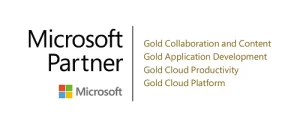You don’t want any surprises as you start preparing for a smooth Implementation if you’ve been researching ERP software to assist manage your organization more efficiently. Discover how long it will take to get started with an ERP system deployment. How long does it take to deploy an ERP system?
The short answer is that there is no typical ERP implementation timetable because it depends on various factors. There are no conventional timeframes for ERP adoption, however, it typically takes 4 to 6 months, or even more. It will always be determined by a variety of circumstances, which include : • Organization size and Number of countries in which the company operates • Employee count • The current organizational business procedure • The anticipated number of system users • The volume of data that must be transferred into the new system. • Industry • The system being installer’s the complexity

When an ERP solution is chosen, the first phase of installation begins. The customer specifies the team members who will be involved in and accountable for the project’s success. Similarly, the job of your ERP vendor is defined. Depending on the level of help necessary, this can vary greatly from one company to the next. Unless you’ve chosen a cloud-based SaaS model ERP, this part of your ERP implementation project plan also involves network/hardware requirements and installation.
Every organization that uses ERP software already has a system in place. While some believe they have no current system, they do. Spreadsheets and manilla folders in filing cabinets may be a system! Not the best things. Then begin the process of obtaining key data from the previous system and then scrubbing and cleaning that data so it can be loaded into your new ERP program. Procedural Improvement- During this phase, the client and ERP vendor teams will outline the present rules and procedures in order to create a roadmap for the new policies and procedures. This phase will also include the required documentation and reporting.
While the average timescale for an ERP deployment cannot be predicted until the needs are completely specified, you should be aware of maintaining realistic expectations. This is not a quick procedure, and it cannot be rushed. Examining your procedures and selecting the best course of action for the future is a process that must be approached with caution. You with your partner can create an implementation strategy that includes checkpoints along the way. You can discuss the variables that may increase or decrease the project’s time together. Stakeholders may grow agitated by the length of time required to complete the project, but keep in mind that future rewards will be reaped if the process is not neglected.
Microsoft Dynamics is a software suite that includes corporate resource planning and customer relationship management. Integration with Microsoft ERP 365 (formerly known as Office 365) can let you harness all of the technologies you use on a regular basis. Businesses, whether small or large, require an ERP solution to succeed in today’s market. Once your ERP system has been determined, proper deployment is critical to getting the most benefit from it. ERP can significantly boost your company’s efficiency if properly implemented.
To get in touch with our Bizmaxus team,email us at info@bizmaxus.com or call us on 0420247594.








